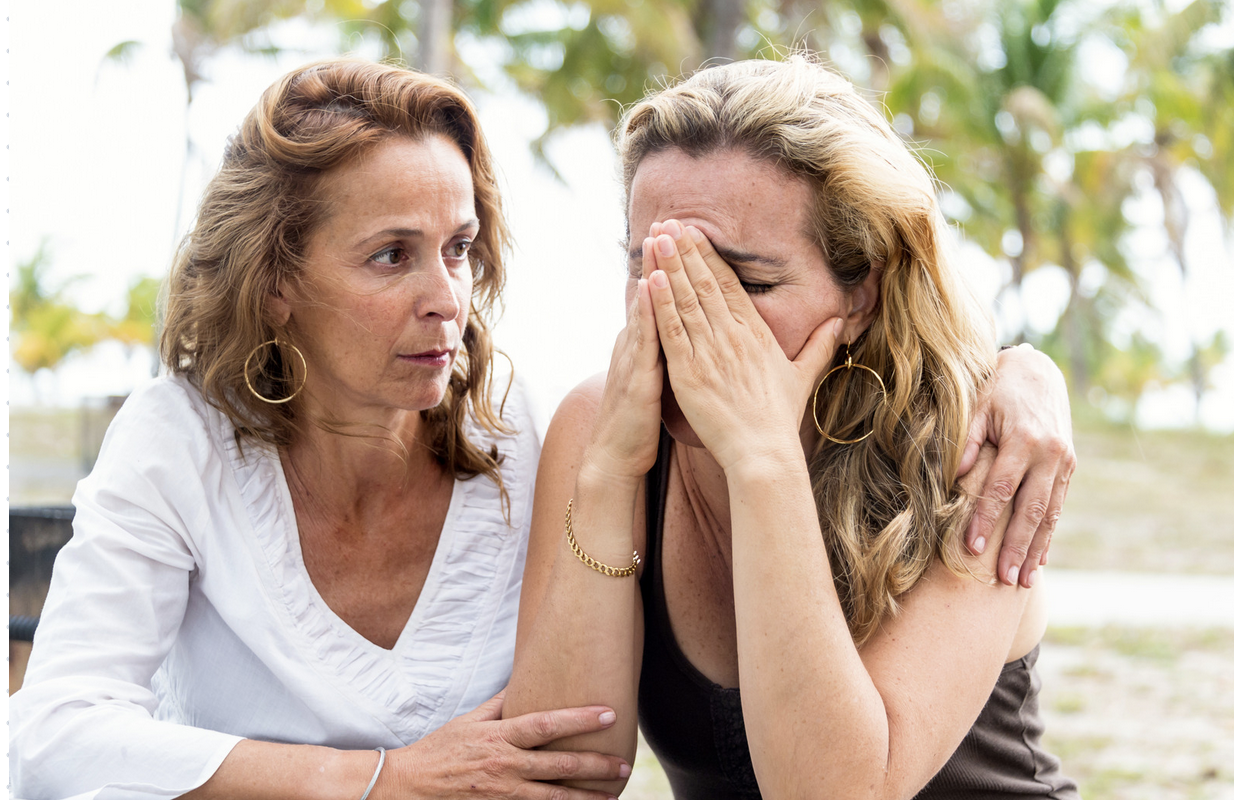On an early 2022 episode of The Ladygang podcast, each of the show’s three hosts reflected on the worst piece of advice they’ve received. For me — and, I imagine, countless other people who’ve dealt with fertility struggles — one host’s pick resonated hard.
One of the show’s co-hosts, Becca Tobin, who welcomed her first child via surrogate, called out a specific breed of bad advice.
What Not To Say to Someone With Infertility
“When you’re going through fertility stuff and you’re talking to other people about it, people who haven’t had fertility struggles, and they say something along the lines of ‘if you just relax, it’s going to happen’ or when people are like ‘watch this, you’re going to go through all this fertility stuff and then one day just out of the blue you’re going to have a baby’,” she said. “I need everyone to take this out of their repertoire. There’s actually nothing worse to say to a woman than that.”
She’s right: This advice is not just terrible, it’s also frustratingly common. It can feel so invalidating — and it’s often totally off base.
For many fertility patients, “relaxing” or “praying” or “taking a vacation” or “having a glass of wine” won’t move them any closer to their goal of having a baby. Sure, we’ve all heard of people who tried to conceive for years, attempted fertility treatments with no success, and then got pregnant when they decided to take a break. But that narrative doesn’t work for every infertility sufferer.
So many patients require intense testing and medical intervention, or must pursue surrogacy or adoption when that medical intervention doesn’t work. That bad advice doesn’t just make people feel even worse about their struggles, it could also potentially set them up for even more disappointment and time spent struggling. “If I had just waited and waited and waited, I would still be [at] square one,” said Tobin.
Of course, the podcast host is not the only person who has balked at this particular type of bad advice. Denise Johnson, who shares details of her four-year (and counting) infertility journey with her over 16,000 Instagram followers, knows just how common and frustrating this is as well.
“If I told you the amount of times I’ve heard [advice like ‘just relax and it’ll happen]... too many to count! What people don’t realize is that relaxation is not and will never be the answer to my journey,” Johnson said. “I have a medical condition, I don’t have fallopian tubes. I don’t know of anyone that has been told to relax and they actually relaxed. That sentence is just very triggering all around.”
“No amount of relaxing is not going to magically grow my tubes back. No amount of relaxing is going to make my traumas go away. No amount of relaxing is going to take away the pain of my pregnancy loss. Relaxing is not the answer,” she continued.
By talking about why this type of advice is so flawed, we have a chance to shift the culture around unsolicited fertility advice. Because the truth is, most people don’t mean to invalidate or trigger or upset someone when they dole it out. Most people aren’t trying to perpetuate a desperate cycle of waiting and trying and hoping with no real progress.
That doesn’t excuse the bad advice fertility patients are receiving, but it does show us that there’s this persistent, misguided idea that relaxation is this magic solution for fertility challenges — even though, in most cases, it’s simply not.
“I think most of these comments come from a good place but they make me feel misunderstood, unseen, frustrated, sad, angry, annoyed, dismissed, belittled, bitter, not good enough. It invalidates my feelings, my sadness and struggles while blaming myself for still not succeeding,” Johnson said. “These comments are unsolicited advice [and] toxic positivity, and are not helpful at all. I think the infertility community would agree.”
Not only do these comments invalidate the emotional toll of infertility, they also put blame on the sufferers themselves. They seem to insinuate that if the person who is struggling to conceive would just take better care of themself, or get a handle on their stress, or approach the process with a different mindset, it would all be different. That’s both unfair and untrue: Fertility exists outside of our control. These comments represent just another example of our societal tendency to blame women for everything (does anyone ever tell men to “just relax and it’ll happen”? Or suggest having a male partner checked for fertility challenges?).
By telling women who are trying to conceive that they need to relax, we’re essentially telling them that if they change their own mindsets, they could change their outcomes. And that’s just not fair.
The idea that stress can impact fertility isn’t new — and, to be fair, it may not be entirely without merit either. The relationship between the two has been debated for years, according to a 2018 published study. That same study acknowledges that the relationship is still unclear, but it does suggest something important: That people navigating infertility are stressed…and that stress could very likely be stemming from (rather than causing) their fertility issues.
Well-intentioned or not, it’s time for everyone to stop with the bad advice directed towards infertility sufferers. “As human beings we feel the need to comfort others but sadly these comments can be more hurtful than we think,” Johnson said. “I think sometimes people say things because they just don’t know what to say, like an auto-response.”
Infertility is a health condition and for many, an issue that requires intense medical intervention. In most cases, it doesn’t simply come down to “relaxing” or “having a glass of wine” or “taking a nice vacation” or “taking a break from trying” — while those tactics may help some people get pregnant, people in the thick of fertility challenges don’t need to hear this misguided advice. Because more often than not, it's doing more harm than good.
Zara Hanawalt is a freelance journalist and mom of twins. She's written for outlets like Parents, MarieClaire, Elle, Cosmopolitan, Motherly, and many others. In her (admittedly limited!) free time, she enjoys cooking, reading, trying new restaurants, and traveling with her family.













.jpg)










